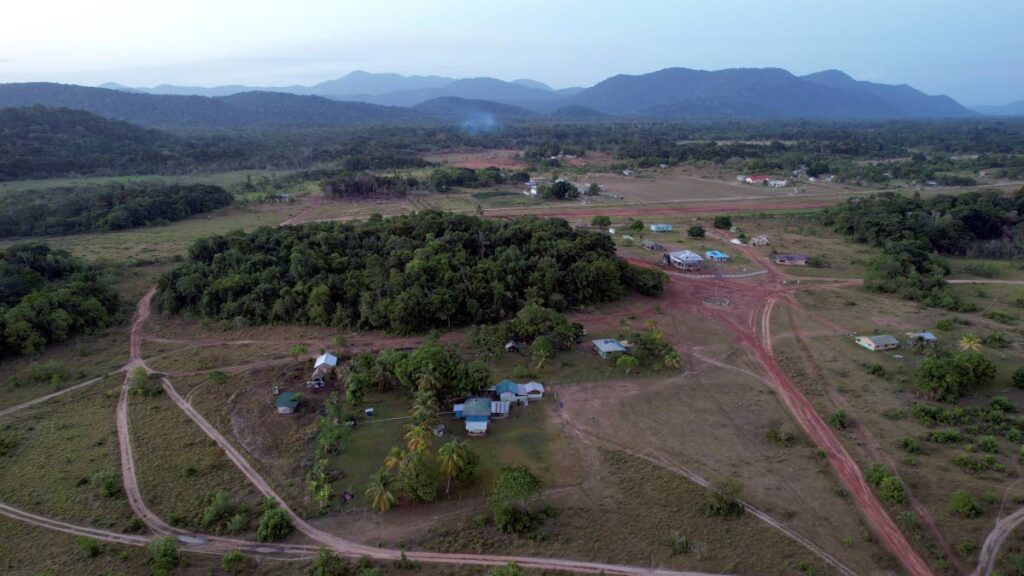Activists: Essequibo people will suffer if dispute escalates

Freelance wildlife photographer, writer, environmental advocate and tour agent Faraaz Abdool believes that Guyana stands to lose more than oil if the Essequibo region is annexed. He believes its rapidly developing ecotourism industry will also suffer.
Abdool is among many who have spoken on the issue, weighing the costs of escalating tensions between Guyana and Venezuela. The dispute goes back to the 19th century, in 1831 a year after Venezuela became a sovereign state.
Abdool made his first visit to the region’s Yupukari village in the Upper Essequibo Region in October.
“A good friend of mine is a guide in Guyana and he is a former soldier there. He does bird watching tours now.
“The reason for us going was to go and get some photographs of the sites there. The birds, the wildlife, so we can start to send some tourists across there to do the same ecotourism activities such as birding and driving around the Rupununi (River) looking for giant anteaters and that sort of thing,” he said.
At the time of his visit, Abdool said there was a “kind of accepted awareness of Venezuelan troops gathering at the border.”
He said while Guyana did not have a substantial army, he said some of the locals, at the time, felt that the international community would not allow the annexation due to the presence of large oil companies like ExxonMobil.
“From some of the people we have spoken to, there is some level of confidence in the international community, basically from their perspective in standing up for what is right.”
He said while many in the region identified as Guyanese, their allegiances were to their respective tribes.
Abdool said many there took great pride in their culture.
“With the advent of a lot of ecotourism talk around the world and Guyana is now kind of blossoming in that regard, the places where tourists visit in the interior of Guyana are indigenous-owned, indigenous run and the money that people spend there goes directly back into their communities.”
He said, In Yupukari, the Caiman House Field Station established with funds from ecotourism activities, is a public library in which locals preserve their native language, Macushi.
“The ecotourism has also stopped men from migrating out of the village.
"Before ecotourism, before there were hotels or lodges or anything like that, then men would leave to find work in Georgetown or go to Caracas, or things like that, or go down to Brazil.
“There is no need for that now because of ecotourism. The men can work at the lodges, work as chefs and guides. There is an even more stable family unit now.”
Abdool said he did not know if such things would continue to be possible if the region was annexed.
“I do not know how accessible it would be. It is fairly easy for a group of US tourists to go to Guyana to access these areas, to pay these people considerable money to stay in their place.
“If that area becomes Venezuela, I don’t know if that is going to be possible.”
Abdool said as a player in the ecotourism field, people of that region stood to lose from that aspect.
Chief of the Santa Rosa First Peoples Ricardo Bharath Hernandez urged both Venezuela and Guyana to consider people first in the dispute.
Hernandez said while he could not speak comprehensively on the matter, as he did not have enough information and did not have contact with indigenous people in the Essequibo region, he called on the disputing parties to think of those people.
He said, “I cannot make an outright comment on the situation because I understand it is a long outstanding issue and I am not fully knowledgeable on all that that entails...
“But what I can say is the people stand to lose. Again, the indigenous people of the region – whatever happens – if it reaches to a point of forced acquisition, it means there are going to be repercussions in terms of lives and livelihoods.
“At the end of the day, the people are going to lose.”
He said people in authority were the ones driving the dispute because of greed.
Hernandez said he hoped that both sides could sit and find a way to address the matter so that the lives of people in the Essequibo region would not be disrupted.

Comments
"Activists: Essequibo people will suffer if dispute escalates"